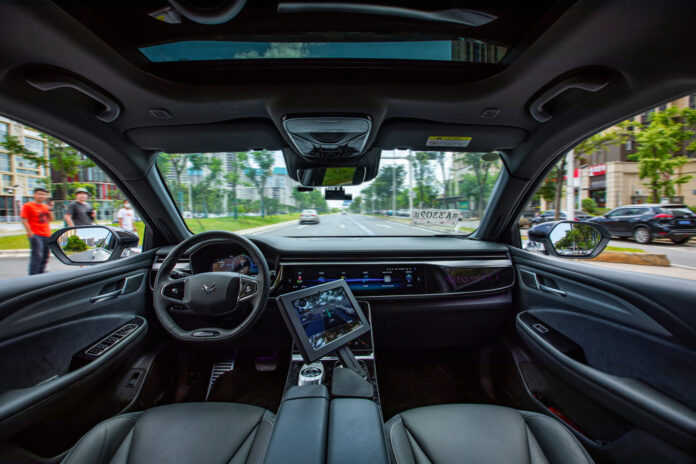Baidu also said it plans to put an additional 200 fully driverless robotaxis into operation across China during 2023
Chinese internet company Baidu announced an expansion of its commercial fully driverless robotaxi service in the city of Wuhan, in Hubei province, Chinese press reported.
According to the report, Baidu is tripling the size of its operation area in Wuhan, increasing the number of robotaxis in service and expanding operating hours in the city to cover evening hours. With this recent expansion, the firm’s autonomous ride-hailing service platform Apollo Go now covers an area of 130 square kilometers in Wuhan.
Baidu also said it plans to put an additional 200 fully driverless robotaxis into operation across China during 2023.
According to the report, Baidu has become the first and the only vendor in the Chinese market to provide a commercialized fully driverless robotaxi service during evening hours.
In addition to Wuhan, Apollo Go service currently provides autonomous ride-hailing services in cities including Beijing, Shenzhen, Shanghai and Chongqing. By the end of the third quarter of 2022, the cumulative order volume of Apollo Go exceeded 1.4 million.
In August, Baidu secured what it claimed to be the first permits in China to offer commercial driverless robotaxi services to the public on open roads.
At that time, Baidu said that its Apollo Go autonomous ride-hailing service was authorized to collect fares for robotaxi rides in the cities of Chongqing and Wuhan.
The permits were granted to Baidu by government agencies in Wuhan and Chongqing’s Yongchuan district. The company noted that both cities have been paving the way for the implementation of intelligent transportation projects in recent years, including the development of infrastructure as well as updating new regulations for autonomous vehicles (AVs).
In order to obtain the permits, Baidu said its robotaxis have undergone multiple steps of testing and licensing, starting from testing with a safety operator in the driving seat, to testing with a safety operator in the passenger seat, before finally receiving authorization to operate with no human driver or operator in the vehicle.
Baidu also highlighted that its robotaxis come with multi-layer mechanisms to guarantee safety, including the autonomous driving system, monitoring redundancy, remote driving capability and a safety operation system.

